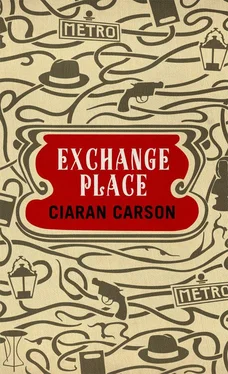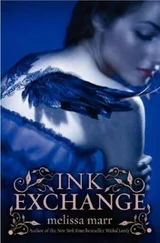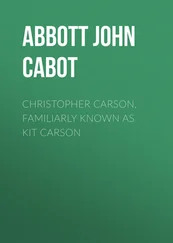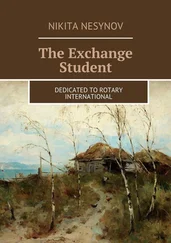At other times he liked it when he was the only customer in the bar, alone with his own thoughts as they came to him over a martini or a Manhattan. He remembered the Blue Room of the Adelphi Hotel in Belfast, where at a certain hour of the early evening he would find himself the only audient to the jazz piano in the corner, not counting the barman, who had no doubt heard it all before as a matter of routine. Kilpatrick liked to think that this time it was different, for when he had seated himself, the piano player — a gentleman of a certain age, brilliantined hair, white tuxedo, cigarette smouldering in an ashtray — would give him a nod of acknowledgement or recognition and seem to launch into another mode, fingers lingering over the keyboard in a reverie of contemplation, exploring the contours of a song that was no doubt long familiar to him, but never realized in this manner until now, the melody haunting itself in its ever-changing repetitions, variations intertwining, unfolding, recapitulating till they dwindled to a conclusion by no means foregone. After the second or third song Kilpatrick would nod to the barman and the barman would set up whatever the piano player was drinking. They never spoke.
Absinthe, said Gordon. Two bubble-stemmed glasses and a carafe of iced water had been set before them. An elaborately perforated spoon holding a sugar cube rested on the rim of each glass. Louche, said Gordon. He gently poured water over the sugar cube and as the sugar dissolved the emerald liquid in the bubble slowly turned a paler opalescent. Kilpatrick, never having done this before, did likewise. Louche? said Kilpatrick. French for that effect, they call it la louche , said Gordon, where it goes milky. Opaque that is, and of course shady as in dodgy, not above board, shifty, sinister, whatever you’re having yourself. He turned his eyes up as if quoting from an invisible text. The first stage is like ordinary drinking, the second when you begin to see monstrous and cruel things, but if you can persevere you will enter in upon the third stage where you see what you want to see, wonderful, curious things. Oscar Wilde. The element of water, said Gordon, liberates the essential oils from the spirit and releases the power of the la Fée Verte . Transformation has always been her fundamental essence. The Green Muse. The Green Fairy. Rimbaud’s Poison. Le bateau ivre. Le dérèglement des sens . How would you translate that, the deregulation, the derangement of the senses? Whatever. Santé . He lifted the glass to his lips and Kilpatrick did likewise and he felt the absinthe cool and liquid on the tongue, burning as it went down. He thought of depths of opalescent green, emerald and eau de nil.
Kilpatrick looked around him. The other customers were all drinking absinthe too. They were talking more volubly now, as if they had turned their conversation down a notch when Gordon and he entered the room. They were elegantly dressed. He noted a lady in what looked like a Chanel jacket and a Hermès scarf opposite a gentleman in an impeccably cut navy-blue suit and a tie in black shantung silk with orange and emerald green splotches, colourful as an Oriental fish against the sea-blue herringbone ground of his shirt. The man fingered the knot in his tie and Kilpatrick found himself doing the same, fingering the Charvet tie that had been so mysteriously bestowed on him it seemed an age ago. He caught Gordon looking at him with a quizzical expression. You’re wondering what these people are doing here, he said. Perhaps, said Kilpatrick, or wondering what we’re doing here, if it comes to that. Oh, we’re doing what they’re doing, said Gordon, chasing the Green Fairy, being themselves, or rather one of their selves. Like us. Look around you, Kilpatrick. Kilpatrick looked around him and saw that every booth was occupied by a single couple not necessarily paired by sex. It’s not what you think, said Gordon. Les Caves des Changes is about change, and to change one must become another self; so these people offer each other counterparts. The interlocutors play off each other as it were, reciprocating and elaborating each other’s phrases, syncopating them as they would the musical score that is the sum of their parts, for they have rehearsed these words often in their memory, and they go back a long way, ever-changing as they move into the future or as time elapses. They are conducted by the mirror neuron, which reflects the words before they are framed by the conscious mind, the neuron firing a good few blinks of the eye before the phrase is even at the back of the mind or on the tip of the tongue; so they speak trippingly, pausing every now and then to consider what has been said, letting silence speak. They do not pretend to know each other, but go with the flow. The absinthe helps. So does the music. Listen. Kilpatrick listened to the ambient music he had first heard when he entered the room. He thought of tubular bells of wood and crystal swaying and chinking in the breeze through a wood as it blew through them, and the wavering of a wind-harp. He heard the birds in the trees. And he imagined John Bourne listening to that eerie music as Bourne walked through the forest of John Kilpatrick’s memory, following him into the dark.
With the accordion music of the Maigret theme still in my head, I opened another of the books that had come to me that morning, Jean Cocteau’s Tour du monde en 80 jours (Mon premier voyage) . I had read no more than a few pages when it seemed to me as if I was reading a different book to that called Round the World Again in 80 Days (Mon Premier Voyage) , translated by Stuart Gilbert. So it proved. I took the Gilbert from the shelf and compared it to the Cocteau. The format and typographical conventions of each were, of course, different, but so was the sense.
Cocteau: ‘ — << Trente milles banknotes pour vous, Capitaine, si nous arrivons avant une heure à Liverpool. >> Ce cri de Philéas Fogg reste pour moi l’appel de la mer et jamais ocean veritable n’aura le prestige à mes yeux d’une toile verte que les machinistes agitaient avec le dos, pendant que Philéas et Passepartout, accrochés à une épave, regardaient s’allumer au loin les lumières de Liverpool. ’
Gilbert: ‘ “Sixty thousand dollars for you, Captain, if your ship makes Liverpool before one o’clock.” In Phileas Fogg’s appeal I still hear the call of the sea. Never for me will any real ocean have the glamour of that sheet of green canvas, heaved on the back of the Châtelet stage-hands crawling like caterpillars beneath it, while Phileas and Passepartout from the dismantled hull watch the lights of Liverpool twinkling in the distance.’
There are no caterpillars in Cocteau’s French. And the end of the sentence, should, I think, read something like ‘while Phileas and Passepartout, hanging on to a wreck, watch the lights of Liverpool coming on in the distance.’ Nevertheless I had been beguiled by Gilbert’s translation when I first read it on the Dublin train. The caterpillars are a stroke of wayward genius. As I look at it now, I am especially taken by his translation of prestige as ‘glamour’. According to the OED, the primary meaning of the English word prestige (French from Latin praestigium illusion, as in prestidigitation) is ‘a conjuring trick; a deception; an imposture’; the sense of ‘influence, reputation, or popular esteem’ comes later. ‘Glamour’, in modern English, is a shade different to ‘prestige’; but its primary meaning is ‘magic, enchantment’. It is a variant of ‘grammar’, harking back to a time when the study of language, in its incantation of declension, was seen as a magical art. A kind of hocus-pocus. For Cocteau, as he voyages across the globe, everything is glamour and theatre, or an opium dream. In Hong Kong, the streets recall the wings of a stage set; the shops and open windows might be dressing rooms in which consummate actors are putting on greasepaint before coming down to play their parts under the red and green limelight of the streetlamps. And as Cocteau leaves Hong Kong, Charlie Chaplin comes on board, bound for Hollywood. Chaplin has no French, Cocteau no English, but they converse effortlessly through mime, la plus vivante des langues , ‘the liveliest of tongues’. Words become gesture.
Читать дальше












